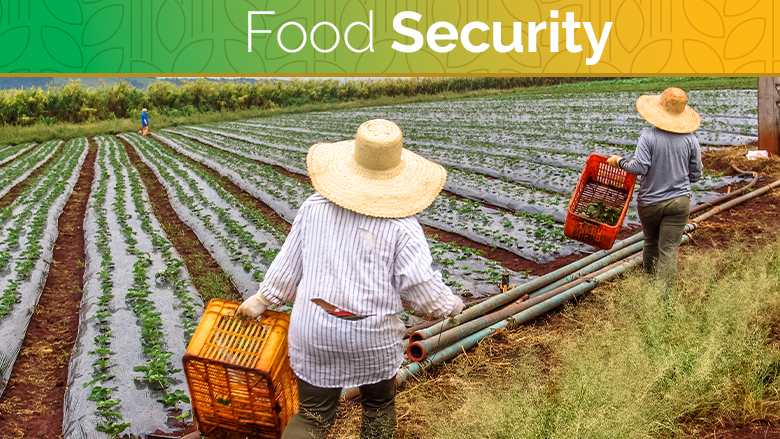Food security plays a critical role in Nigeria due to its direct impact on the well-being of the population, economic development, and social stability. Here are some key aspects of the role of food security in Nigeria:
- Human Well-being: Food security ensures that individuals have access to safe, nutritious, and sufficient food to meet their dietary needs for an active and healthy life. In Nigeria, where a significant portion of the population faces poverty and malnutrition, achieving food security is essential to improving the overall health and well-being of the people.
- Economic Development: Agriculture is a vital sector of Nigeria’s economy, employing a large percentage of the population and contributing significantly to the country’s Gross Domestic Product (GDP). Food security not only ensures adequate food supply for domestic consumption but also supports agricultural productivity and income generation for farmers. A robust agricultural sector can drive economic growth, reduce unemployment, and alleviate poverty in both rural and urban areas.
- Social Stability: Inadequate access to food can lead to social unrest, conflict, and instability. Food insecurity exacerbates social inequalities and disparities, contributing to social tension and unrest. By ensuring food security, Nigeria can promote social cohesion, reduce inequalities, and mitigate the risk of conflicts over scarce resources.
- Healthcare: Malnutrition, resulting from food insecurity, is a significant public health challenge in Nigeria. Insufficient access to nutritious food can lead to undernutrition, micronutrient deficiencies, and stunted growth, particularly among children. Addressing food security issues is crucial for improving nutrition outcomes, reducing the prevalence of malnutrition-related diseases, and enhancing overall public health.
- Resilience to Shocks: Nigeria is susceptible to various natural and man-made shocks, including droughts, floods, conflicts, and economic crises, which can disrupt food production and supply chains. Achieving food security involves building resilience to these shocks through sustainable agricultural practices, investment in infrastructure, social safety nets, and emergency response mechanisms.
- Environmental Sustainability: Sustainable food production and consumption practices are essential for preserving natural resources, biodiversity, and ecosystem services. Ensuring food security in Nigeria requires promoting sustainable agriculture, reducing environmental degradation, and mitigating the adverse impacts of climate change on food production.
In summary, food security is integral to achieving sustainable development, economic prosperity, and social stability in Nigeria. Addressing food insecurity requires multi-sectoral approaches, including investments in agriculture, infrastructure, social protection, and policies that promote equitable access to food and nutrition for all segments of the population.

